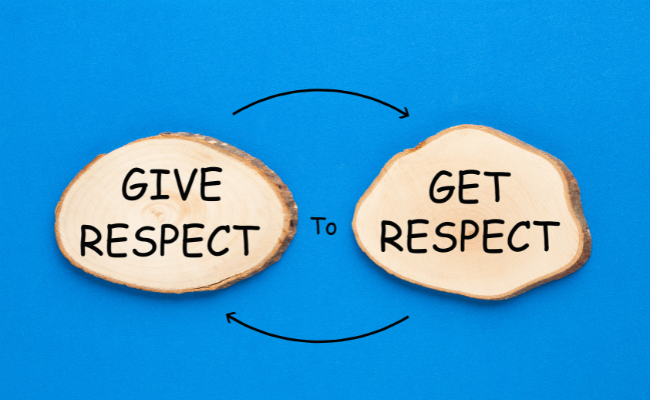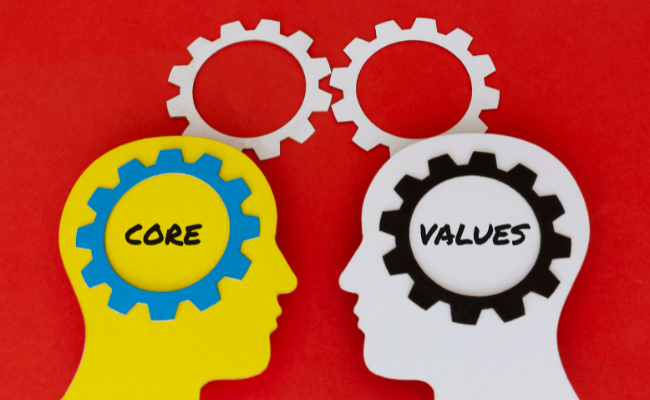The RFactor, Relationships at Home and Work with Ken Ashby & Maris Segal
We’re all connected as humanity. When we’re not in sync with ourselves, it’s difficult to create harmony and be in tune with everybody else.”
– Maris Segal
I had the delight of speaking with Ken Ashby and Maris Segal, whom I met at the Best You Expo in LA. They are known for being master connectors, incredible speakers, and transformational coaches. They have a book published this year called The RFactor: Discover the Universal Rhythms for Leading Prosperous Relationships.
We discuss:
- The power of respect and its importance in relationships
- The rhythm of responsibility and knowing your core values
- Reframing limiting beliefs and standing resilient against the waves of life
The power of respect and its importance in relationships

While writing their book, they aimed to convey findings from their research as executive coaches in a way that engaged and inspired others without becoming a how-to or a listicle. Through taking a more story-based approach, they emphasized four key relationship rhythms: Respect, responsibility, reframing, and resilience.
“Rhythm is part of everything in our world. Certainly, in nature, we have the circadian rhythm, the sunrises, the moon cycles—all of those different rhythms are constantly affecting us every day of our lives. And we thought, ‘What is the rhythm of relationships?’” Ken shares.
“We identified these four key relationship rhythms that, when they work together, our lives are in sync, our lives are in harmony,” Maris adds.
One quote from their book sums up the role of each rhythm: “Show up with respect, stand up and be responsible, reframe limiting beliefs, and step forward with resilience.”
Respect is a powerful thing. We can all no doubt think of a time we felt disrespected—it can be a universal plight, from the workplace to home life. The second side of respect is how we bring respect to other people. That can be as simple as showing up on time for a meeting, following through on a promise, and showing that we respect the other person's time and input. With respect on both sides comes trust. A lot of times, a lack of respect for others traces to a lack of respect for ourselves. Everything is connected inwardly and outwardly.
“This is about how we are moving in our lives inside,” Maris says. “How we're feeling inside is always inevitably about whether or not we're feeling bad about ourselves. If we wake up in the morning and we aren't waking up in gratitude and talking about the power and value of our day, then our whole day can be negative. We choose that.”
And as a result, we show up that way with our kids, our spouse, and our partners, we show up that way snapping at people we're managing at work, etc. It's an inside-out process, not one or the other.
“If we are not in sync with ourselves, then it's very difficult to create harmony and be in sync and be in tune with everybody else,” Maris continues.
The rhythm of responsibility and knowing your core values

Responsibility comes from an intentional commitment, taking accountability for our actions, and determining which commitments connect to core values.
“When we're responsible, expectations are aligned, and our relationships are full of possibilities,” Maris says. “What's interesting about responsibility is that we've come from a place already of respect, so we know it's about being present and listening. But in our response, our responsibility, and accountability are important. We get to acknowledge being a place of accountability for ourselves and others.”
Framing responsibility this way applies to every part of life, from the office to home. If a team doesn’t have a clear idea of the company mission, performance suffers. If a family isn’t on the same page regarding priorities, connection suffers.
“Often, we're in that situation where we may say, ‘The boss didn't give me this information,’ Well, you have a choice here. Are you going to be the victim or the victor, the responsible person? Because I am responsible for myself and how I react and/or respond to others,” Maris continues. “Expectations without agreement create premeditated resentment every time.”
In the rhythm of responsibility, we carry the respect to the situation. We stand responsible for communicating clearly and aligning expectations from the top down.
Reframing limiting beliefs and standing resilient against the waves of life

A limiting belief typically stems from a formative event in our past—traumas, hardships, big life changes—that repeats a phrase or “belief” about ourselves on a loop daily, weekly, monthly, and yearly, reinforcing our limitations with paper mache proof from the past.
These phrases can look like, “Oh, I could never do X because Y happened.” Or “No way, I’m not good enough for X because of Y.” These beliefs, though seemingly simple and easily swatted away, can turn into slow-growing shackles, compounding over time.
“This idea of reframing—of looking at those limiting beliefs, or traumas and dramas that we've experienced in the past—and reframing them, retelling the story, recreating the story, finding a place in there that can be supportive, as opposed to limiting you or holding you back,” Ken shares. “Listen to what’s going on in your head.”
It’s no secret that our thoughts drive our actions. The records we keep putting on in our minds dictate more than our moods—they propel us through life. Our intentions start as thoughts and turn to feelings, which leap out as actions. It’s up to us which thoughts get to complete that cycle.
To help with that process, Ken and Maris suggest we FACE it:
- Freely
- Acknowledge
- Current
- Emotion
If we ignore how environments and situations make us feel, they have a greater risk of boiling out in ways we don’t want them to. Better to FACE it and acknowledge the truth of the matter; take away its power.
That takes resilience—the ability to keep facing it again and again, choosing to connect with our emotions and reframe our limiting beliefs.
Can you think of a time you faced your current emotions and moved forward? How have you felt the effect of respect or lack thereof in relationships?
Be sure to check out Maris and Ken’s full episode for further insight and learn more at SegalLeadershipGlobal.com!








